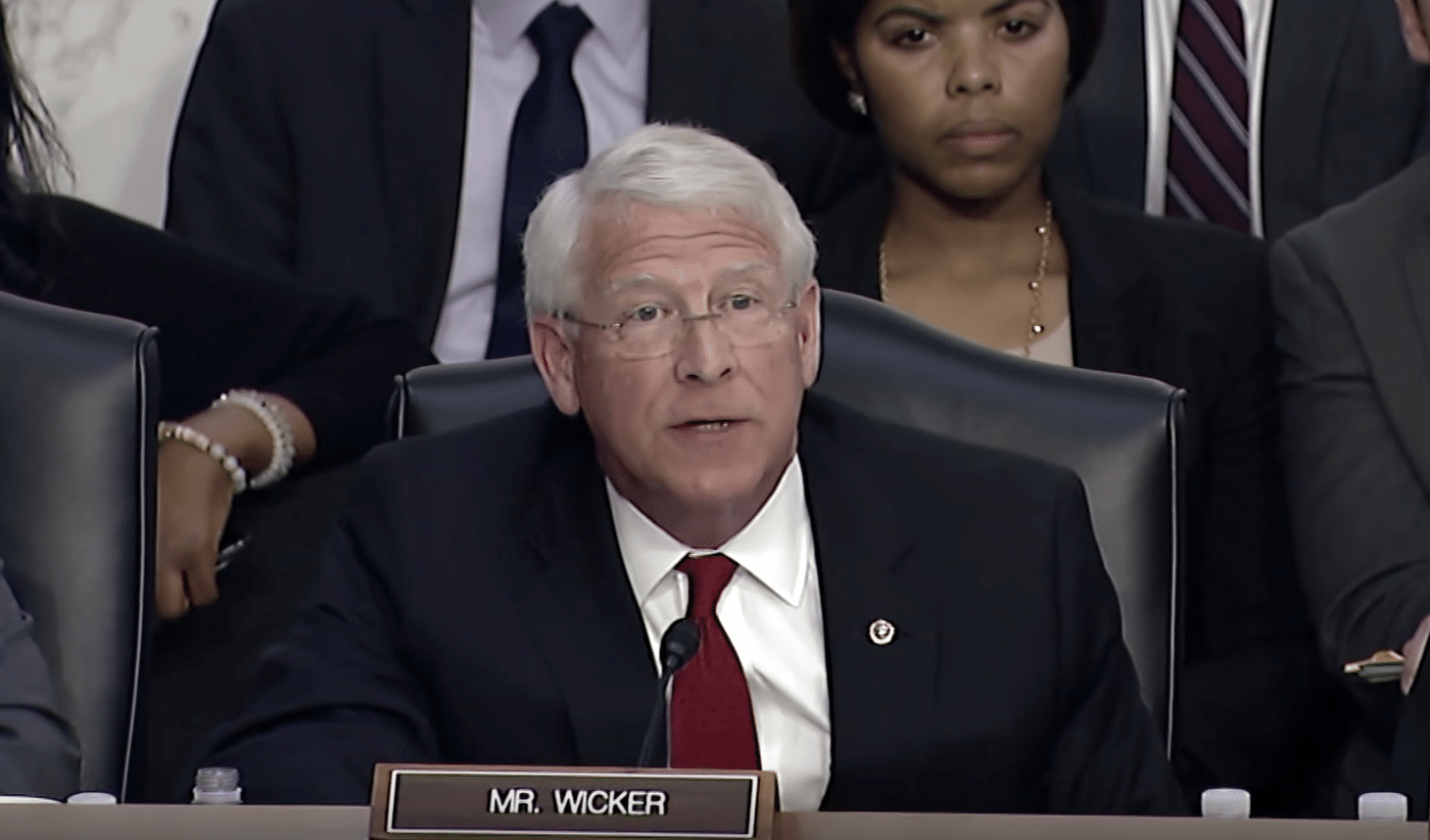U.S. Senator Roger Wicker chaired a hearing of the Senate Committee on Commerce, Science, and Transportation to consider Vice Admiral Karl Schultz’s promotion to Admiral and nomination to become the 26th Commandant of the U.S. Coast Guard.
In his remarks to the committee, Wicker commended the Coast Guard for its contributions to the safety, security, and prosperity of the United States.
“The Coast Guard has had a tremendous year by all accounts,” Wicker said. “As our nation’s smallest armed service, it has repeatedly shown its value to the American people.”
This year, the Coast Guard has stopped more than $6.6 billion worth of cocaine and other drugs from entering the United States. The service also responded to Hurricanes Harvey, Irma, Maria, and Nate, helping to save more than 11,000 lives.
However, Schultz said there are many drug shipments that the Coast Guard is not able to get to.
“On average we have awareness of about three-quarters of the drug events that transpire on a day to day basis,” Schultz said. “We have the capacity to action/target about one-third of those, 25-33% of those. Of those cases that we have the resources to go after, we have a very high success rate, somewhere north of 80%. Is it frustrating? It’s a choice.”
Wicker also cited the considerable challenges facing the Coast Guard and its incoming commandant, including significant increases in vessel traffic in the Arctic, and an aging fleet that is in constant danger of breaking down.
Wicker probed the Coast Guard’s need for additional National Security Cutters (NSC) to replace an aging fleet of 12 High Endurance Cutters that have been cited by the Department of Homeland Security Inspector General as posing “significant challenges to mission performance.”
Schultz said that capacity is something they deal with on a daily basis and that with more capacity they would be able to “take a bigger bit” out of the hundreds of identified threats that are not addressed each year.
The most recent omnibus budget bill provided funding for the construction of two additional NSCs, which are built at Huntington Ingalls in Pascagoula.




